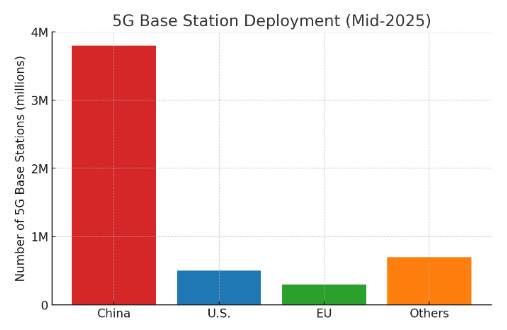“The supreme art of war is to subdue the enemy without fighting.”
— Sun Tzu, The Art of War
In 1861, as the American Civil War erupted, Union generals understood that controlling the flow of information meant controlling the battlefield. The North’s deliberate severing of Confederate telegraph lines isolated enemy units, delayed reinforcements, and disrupted logistics. Telegraphy, then a novel and often misunderstood tool of warfare, quickly proved decisive. By 1863, the U.S. Military Telegraph Corps had laid over 15,000 miles of wire, giving the Union a strategic edge.
During World War II, firepower alone didn’t secure victory—it was the ability to decipher enemy plans. Britain’s Bletchley Park cracked the Enigma code, turning intercepted signals into strategic insight. Command of communications didn’t just speed troop movements—it transformed the nature of war itself.
Today, Morse code and telegraph machines have been replaced by terahertz spectrum and AI-enhanced networks. Yet the lesson remains: the party that builds and controls the communication infrastructure shapes the economy, dominates energy, and commands future conflicts. China understands this. The West? Less so.
The United States attempted to block Huawei’s 5G expansion—but the move came too late. China had already rolled out millions of base stations, backed entire telecom stacks, and begun setting the global standards. Now, as 6G development accelerates, China is executing the same strategy—faster and more aggressively.
China holds 40 percent of global 6G patents—nearly triple the U.S. share. By mid-2025, it had installed over 3.8 million 5G base stations, forming the backbone for 6G deployment. Chinese proposals have already influenced the official global 6G architecture.
Keep reading with a 7-day free trial
Subscribe to The Monetary Skeptic to keep reading this post and get 7 days of free access to the full post archives.



